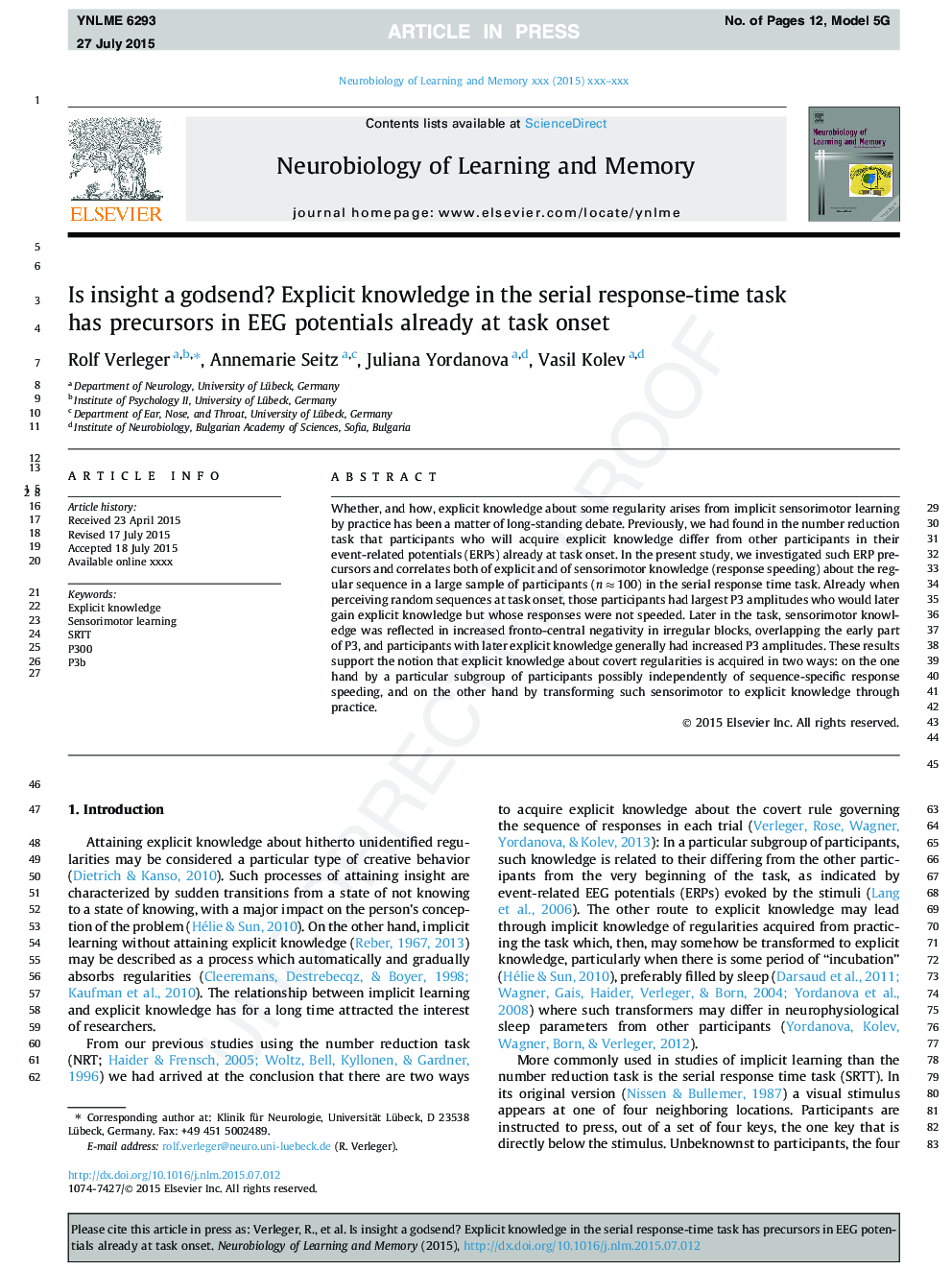| Article ID | Journal | Published Year | Pages | File Type |
|---|---|---|---|---|
| 7299232 | Neurobiology of Learning and Memory | 2015 | 12 Pages |
Abstract
Whether, and how, explicit knowledge about some regularity arises from implicit sensorimotor learning by practice has been a matter of long-standing debate. Previously, we had found in the number reduction task that participants who will acquire explicit knowledge differ from other participants in their event-related potentials (ERPs) already at task onset. In the present study, we investigated such ERP precursors and correlates both of explicit and of sensorimotor knowledge (response speeding) about the regular sequence in a large sample of participants (n â 100) in the serial response time task. Already when perceiving random sequences at task onset, those participants had largest P3 amplitudes who would later gain explicit knowledge but whose responses were not speeded. Later in the task, sensorimotor knowledge was reflected in increased fronto-central negativity in irregular blocks, overlapping the early part of P3, and participants with later explicit knowledge generally had increased P3 amplitudes. These results support the notion that explicit knowledge about covert regularities is acquired in two ways: on the one hand by a particular subgroup of participants possibly independently of sequence-specific response speeding, and on the other hand by transforming such sensorimotor to explicit knowledge through practice.
Related Topics
Life Sciences
Neuroscience
Behavioral Neuroscience
Authors
Rolf Verleger, Annemarie Seitz, Juliana Yordanova, Vasil Kolev,
